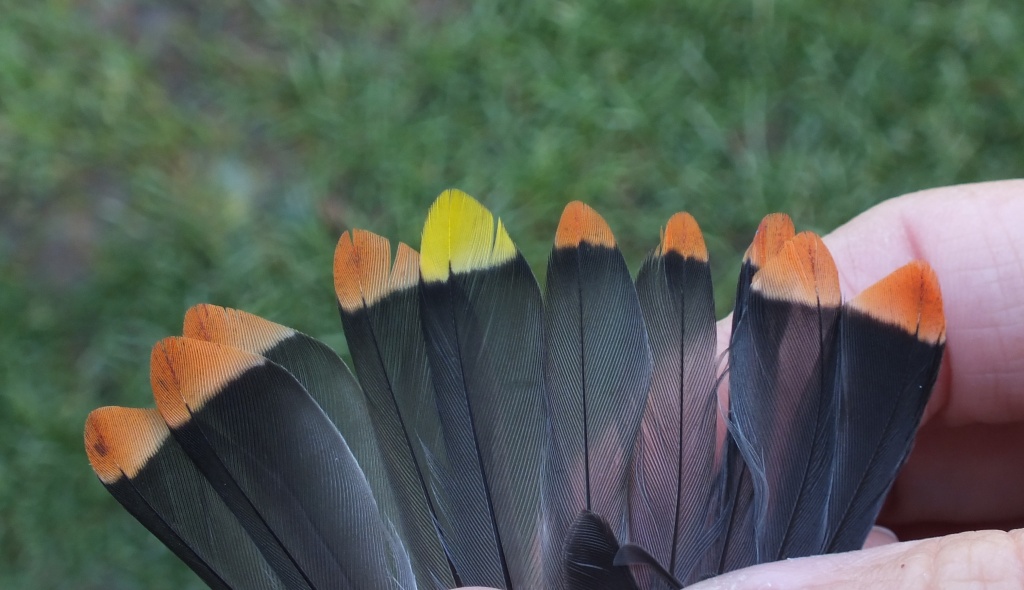
The newly moulted yellow-tipped central rectrix in this Cedar Waxwing sets off the orange tips caused by the pigment rhodoxanthin found in introduced exotic honeysuckle.
Cold westerly winds were billowing the nets as soon as I got them open and then filled some of them with yellow leaves. We caught few birds today although there were a lot around – just not in the vicinity of the nets. Peter Thoem, who did the census, reported: Masses of EUST [starlings], RWBL [Red-winged Blackbirds], AMRO [robins] along river near net 8. Lots 40+ MYWA [Myrtle Warblers] in valley below lanes 6,7.
We had a pretty good first net round but things tailed off quickly after that, despite the obvious numbers of birds in the area. The movement of the billowing nets was certainly a factor – and we closed up a little early as we didn’t want birds caught under these conditions as it can put them in jeopardy.
As I was doing my rounds I couldn’t help but feel that this migration is winding down. A sign of this would be the steadily declining variety of species encountered each day – today, despite a good census and persistent observations, we could come up with only 34 species.
Banded 28:
1 Brown Creeper
3 Ruby-crowned Kinglets
5 American Robins
6 Cedar Waxwings
6 Myrtle Warblers
2 White-throated Sparrows
4 Dark-eyed Juncos
1 American Goldfinches
ET’s: 34 spp.
Rick

Today’s blog made me think of this poem
-audrey
INDIAN SUMMER
Along the line of smoky hills
The crimson forest stands,
And all the day the blue-jay calls
Throughout the autumn lands.
Now by the brook the maple leans
With all his glory spread,
And all the sumachs on the hills
Have turned their green to red.
Now by great marshes wrapt in mist,
Or past some river’s mouth,
Throughout the long, still autumn day
Wild birds are flying south.
William Wilfred Campbell (1860-1919)
Born at Kitchener, ON, Campbell was known as the poet of the Great Lakes.